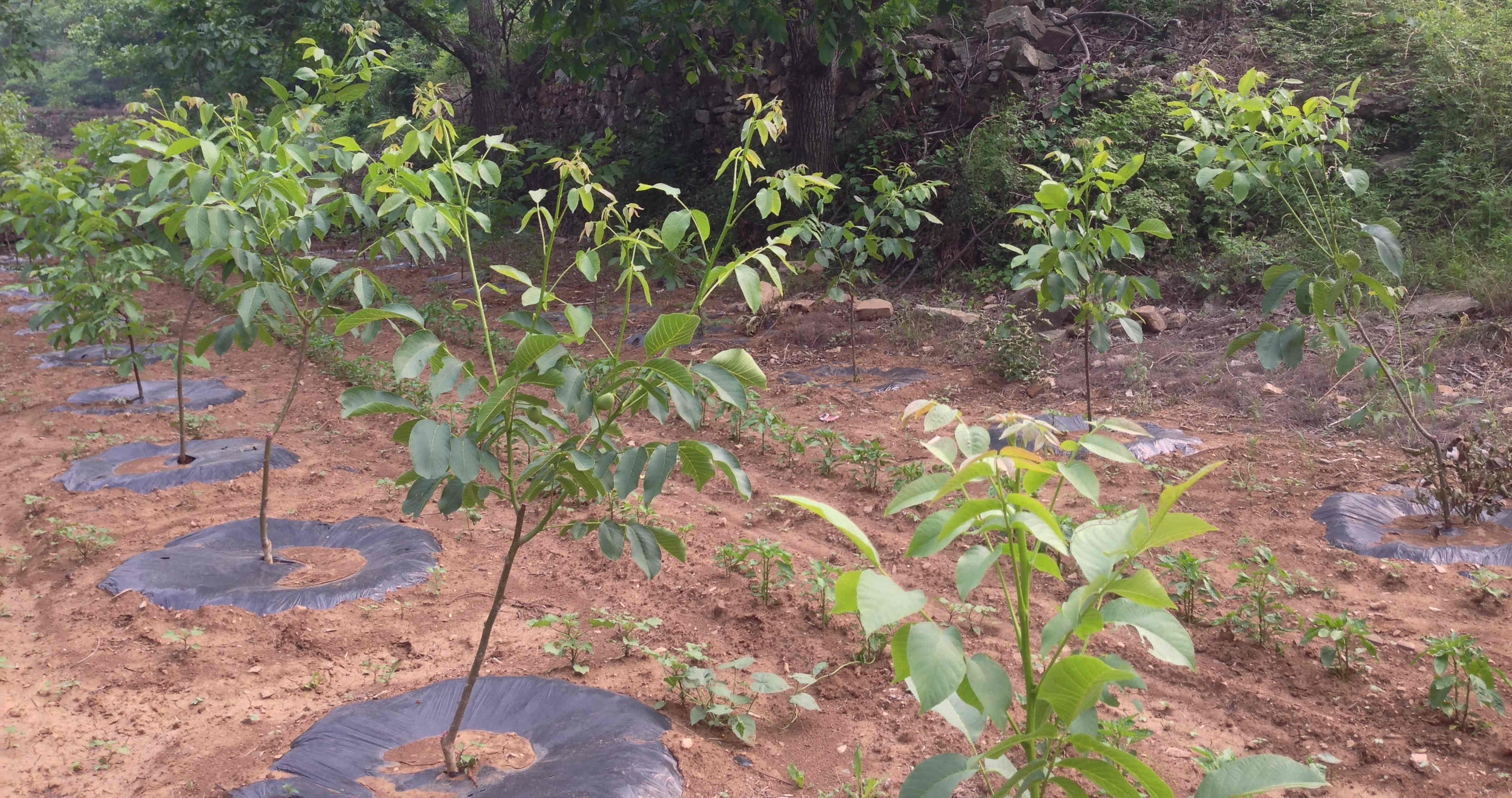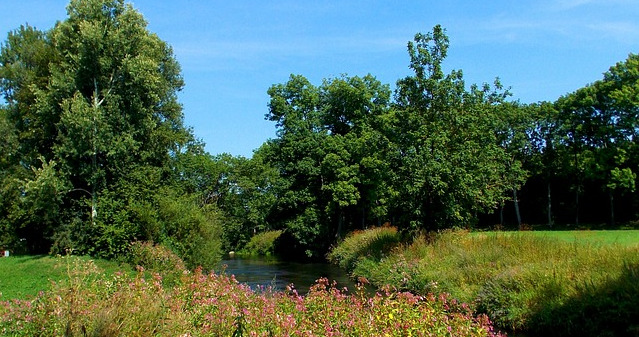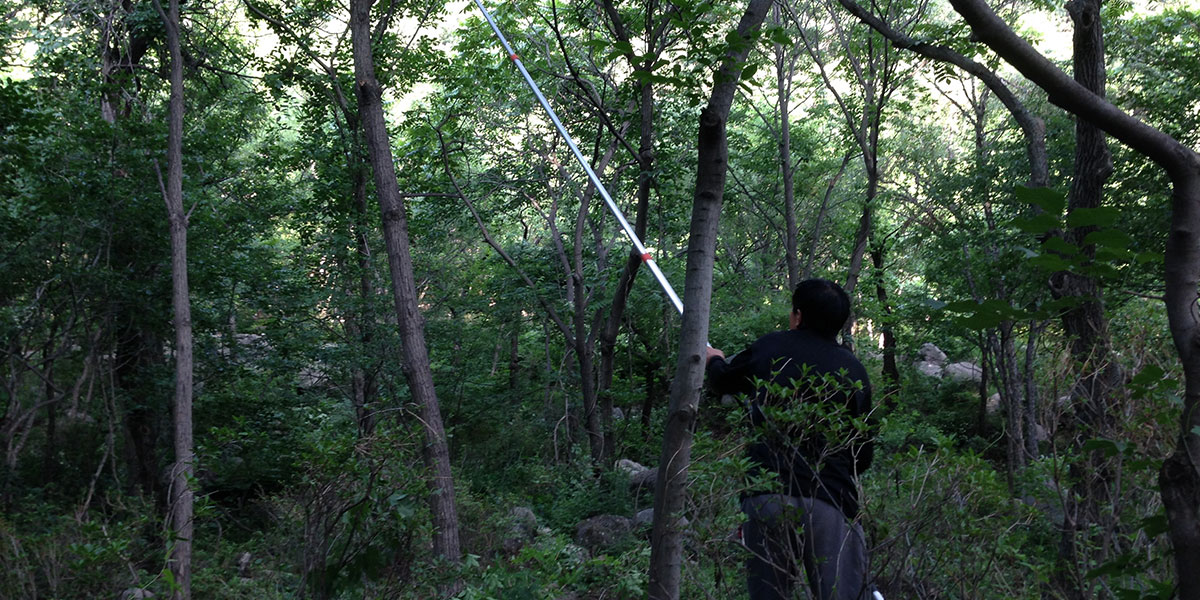
Forest Management
Details
BFS’s Involvement in Forest Management
The Beijing Forestry Society has a long standing involvement in forestry as it draws from some of the most reowned experts the scene has to offer. Furthermore after many years of working with international organizations, BFS has enhanced its forest management concepts with knowledge from abroad. In each executed project that involved forest management, BFS aims to use the most sophisticated forest management methods to cultivate multi-functional forests.
Why are Miyun’s forests important?
Erosion Control
Forests and shrubland are essential to prevent soil from just being “washed off”. The roots of the plants together with the litter and other living biomass hold the soil back and ensure it stays where it is. This means that more nutrients stay in the landscape and less sediments are clogging the Miyun reservoir. Additionally, the older a forest on a given landscape, the more developed the soil is which in turn permits rare plants to grow and thus enhances biodiversity.
Forests & Water
Forests Influence both water quantity and quality. Forests with their deep root system enhance the filtration of water, acting as a free water purifier. Research has shown that watersheds largely covered with forests have better water quality than their counterparts. Water quantity is a bit more complicated as trees also need water for their survival, however, it is clear that forests help reducing the immediate discharge after rainstorms, meaning there is a more continuous water flow over a longer time, moderating storm events.
Livelihoods
Especially poor people in rural areas often depend strongly on forests for their livelihood. NTFPs (Non-Timber Forest Products) like mushrooms, fruit or medicinal plant provide are either used for private consumption or for selling at the market. Fuelwood is often collected to satisfy the heating and cooking needs of the villagers. Especially in Miyun, where many forests are designated as natural protection forests, NTFPs often present the only livelihoods people can draw from the forest.
What is BFS doing to improve Miyun’s forests?
While thanks to the national afforestation efforts in the past decades the reestablishment of Miyun’s forests has succeeded in many areas, the quality of these forests is still an area that needs improvement. The past afforestation efforts mainly focused on establishing single-species plantations that were resilient to the harsh conditions reigning in the deforested landscape. While 20 or 30 years ago there was little choice in species it resulted nevertheless in species-poor unnatural forests. BFS is now focusing on improving the quality of Miyun’s forests and establish forests in areas that are crucial but have been neglected in the past.
Close-to-Nature Forest Management
Close-to-nature forestry (CNF) is a management method to imitate the natural growth processes a forest shows anyways while still guiding the forest in a direction that is beneficial to humans.It is based оn reduced human intervention, that should be directed to accelerate the processes that nature would do by itself more slowly. CNF mainly works with native species and species compositions. Under CNF biodiversity, water filtration and other ecosystem services improve significantly. Learn more.
Riperian Buffer Restoration
The riperian buffer (the zone right along the river bed) helps to protect the river from the effects of land uses close to it, like agriculture by stopping sediments, fertilizer and other things from simply being washed into the river through the network of its roots and other organic matter. Due to historic deforestation the riparian buffers along rivers in the Miyun watershed are often heavily degraded. BFS restores these riparian buffers as part of several different projects as a means to improve water quality and reduce river pollution.
Orchard Management
BFS is not only involved in classical forest management. Improving the livelihoods for local people is one of the main priorities and orchards, specifically for walnut and chestnut production, present the perfect tool to do this in the Miyun watershed. BFS has conducted trainings for local farmers on how to improve crop production through better grafting techniques, and soil treatment but also on how to reduce the use of fertilizers and water.



